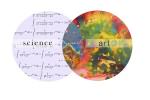Written by Emma Sammut
Sixth form life, to enthusiastic secondary graduates, is a haven for those ambitious and studious individuals who enjoy the hectic hubbub of scholarly or party life. Though, the student body is sub-divided into categories, which usually involve our choice of course. The general thought is that of each course believing it is better than one or more of the other courses.
The hierarchy begins with the Sciences thinking they are better than the rest of the courses, followed by Maths ‘elites’ affirming they are better than Commerce and Arts. Their mental prowess surpasses business ethics and artistic capability, apparently. All well and good. The latter two, so to say, ‘weaklings’ also feud silently. Commerce believes it is better than Arts, whilst Arts is left to contemplate why a course like Commerce would believe itself to be superior. Commerce are oftentimes estranged students who suffer from an immense amount of free lessons — while the Arts so jovially memorise lines and lines of Shakespeare whilst dulling the urge to cry.
This phenomenon leads to a “course pyramid”, with Sciences at the top, Arts at the bottom, and Maths and Commerce trying to fill in the gaps. Many people tend to assume that people in Science are the most intelligent since it is the most competitive course to get accepted into. Whereas, commonplace stigma refers to Arts being thought incapable, as languages are assumed to be easy. However, despite all this commotion and pride, Arts and Humanities students are often tagged as the incompetent course due to their career tastes and personal infatuations. It’s also a relatively easy ranking system, as languages generally don’t involve that much hassle. Though, from experience, I can assure you that the material a language student needs to cover is far from simple. There’s a dual perspective to how some may handle this. There’s the chill, mellow viewers that go along with the stereotype, simply for the fun and thrill of comedy (me, basically). Though, there are others, still sensitive about their decisions and those who resort to denial, who don’t take it as well as the former.
What you chose was in the end, your choice. Don’t feel discouraged about it. Some courses may take it seriously and make it the essence of their mockery – they think it’s amazingly accomplished to make fun of those “lesser” subjects. In reality, languages require a good command of grammar, syntax and creativity, abilities not everyone is endowed with. Sciences require responsibility and eye for detail. For Maths and Commerce, a hefty, decisive mind is an essential. Sixth form offers us the opportunity to specialise and develop our talents in every course, and yet, a vast majority of us continuously bring this down. Is this the real scholastic spirit?
This article was given a neutral perspective for a simple reason – by discussing this “stigma”, and arguing from a collective point of view, a consensus will be reached eventually. Mockery and banter are an essential part of sixth form cycles, they cannot be avoided and they are, in the end, entertaining. However, having said this, keeping an impersonal view will ultimately avoid outbursts and dramas – as well as pique, and tension amongst us.




Sorry, comments are closed for this post.